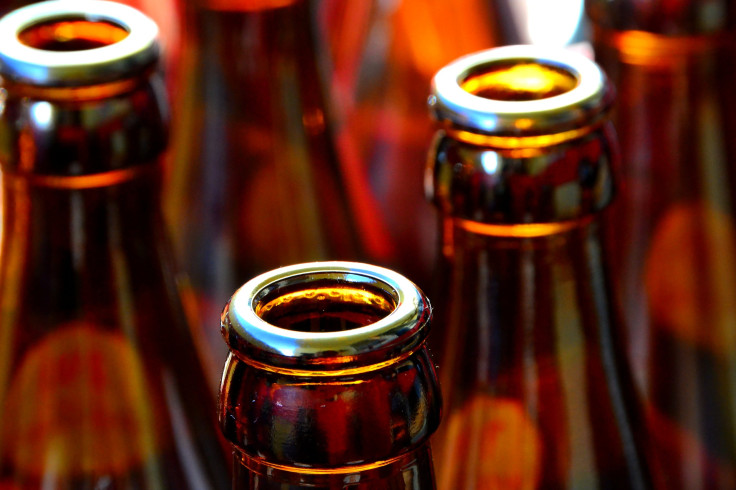Strict Alcohol Laws Keep Men From Drinking Too Much — Unless They’re Naturally Prone To Sensation-Seeking Behavior

Young men are at high risk for alcohol consumption, so it's a good thing drinking regulations are doing what they’re supposed to, acting as a preventative measure —at least most of the time.
Researchers from the University of Zurich in Switzerland surveyed about 5,700 young males (average age of 20) about their drinking habits as well as their lifestyles, personalities, and consumption of other substances like cannabis and tobacco. The team saw that those men living in cantons with stricter alcohol laws tended to drink less dangerously.
Around half of the respondents were identified as “high-risk” drinkers, meaning that they consumed at least six alcoholic drinks in one session at least once per month. About a third of them also had alcohol problems — repeated drinking behavior that resulted in harmful consequences or risks. “Young adults and young men are most vulnerable to high-risk and abusive drinking, which can develop into an alcohol addiction,” said Meichun Mohler-Kuo, a professor from the Epidemiology, Biostatistics, and Prevention Institute at the University of Zurich, in a press release.
The cantons in which laws regarding the sale and advertising of alcohol were stricter saw less of these behaviors, echoing international studies that reported a reduction in alcohol consumption and alcohol-related problems with the introduction of alcohol laws.
When Are Laws Just Not Enough?
The only finding that contrasted the others occurred when individuals with a tendency toward "sensation-seeking" or antisocial behavior were considered.
Men in this category constantly sought exciting new experiences, regardless of the risk. This category has been consistently associated with alcohol-related problems and risky drinking behaviors, along with men who tend to disregard laws. In the case of this group, personal predisposition has a greater influence on alcohol consumption than legal regulations.
“Evidently, it’s very difficult to reach the men who are most at risk with the existing preventive measures,” said Simon Foster, a scientist at the Institute. “This subgroup needs special preventive measures that are geared toward early detection and tailored to the personality profiles of the men affected.”
Sensation-seeking is a personality trait that has been studied extensively in the psychological world, but neuroscience is only beginning to take a look at it. Understanding the underlying neural mechanisms that prompt risky behavior, is a hallmark of sensation-seekers, may help us better design ways to reach them in preventative measures.
Source: Foster S, Held L, Estevez N, Gmel G, Mohler-Kuo M. “Liberal alcohol legislation: does it amplify the effects among Swiss men of person-related risk factors on heavy alcohol use?” Addiction. 2015.
Published by Medicaldaily.com



























